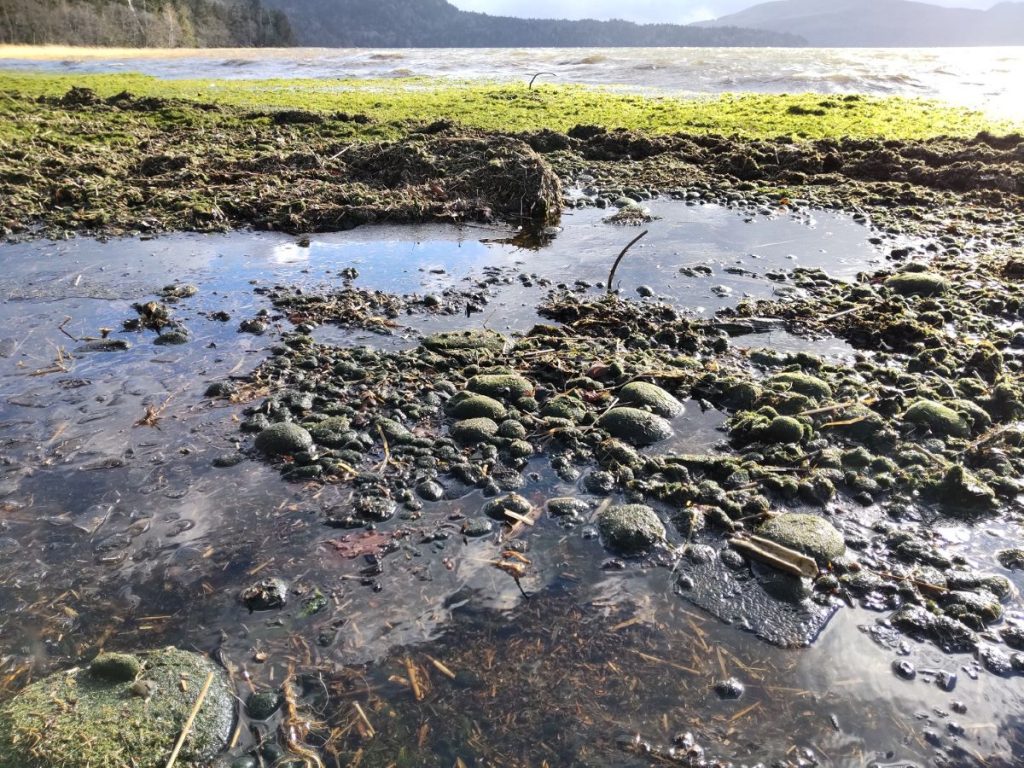
Marimo "algae balls" in Lake Akan, Hokkaido. (Photo courtesy of Kushiro Board of Education)
Read the full story on Japan 2 Earth - Hokkaido's Beloved Marimo Algae Facing Existential Threat from Global Warming
Marimo, fluffy balls of green algae that grow in the serene waters of Hokkaido’s Lake Akan, are designated as a national special natural monument. They are now headed toward extinction due to global warming. Recent studies have exposed the peril faced by larger marimo specimens. What unfolds within the lake’s depths for these globally rare aquatic organisms?
Spheres of Many Sizes
Marimo are made up of a type of filamentous green algae, usually measuring around three centimeters, that comes together in a spherical form. The name marimo is a fusion of the Japanese words mari (ball) and mo (algae).
Some grow to basketball-like proportions with diameters spanning from 20 to 30 cm, with the largest recorded measuring an impressive 34 cm. These remarkable Marimo grow about one cm a year and take over two decades to attain their substantial size.
While thread-like marimo are scattered across various high-latitude zones in the Northern Hemisphere, these large spherical marimo only grow in Lake Akan in Kushiro City, Hokkaido. They once thrived in European lakes, but their numbers dwindled due to water pollution.

The iconic spherical shape of marimo emerges from their growth pattern on the lake bottom. As wind-induced ripples traverse the lake's surface, marimo remain in a fixed position at the lake bottom. Yet, they rotate swayed by the waves, ensuring an equitable exposure to sunlight. This mechanism ensures the even growth and iconic round shape that distinguish marimo.
Continue reading the full story on Japan 2 Earth to learn more about what can be done to save Japan's marimo algae.
And find more great articles on the environment and the challenges of achieving the SDGs on our new website Japan 2 Earth (J2E), sparking a transition to a sustainable future.
RELATED:
- Climate Change: Sake Brewery Finds a New Home in Hokkaido
- Hokkaido Feels the Summer Heat
- Save the Butterflies: Japanese NPO Joins European Monitors to Count Colorful Insects and Preserve Biodiversity
(Read the article in Japanese.)
Author: Yosuke Osanai








